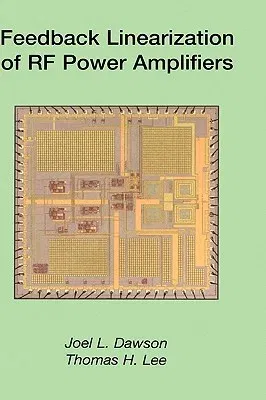Improving the performance of the power amplifier is the most pressing
problem facing designers of modern radio-frequency (RF) transceivers.
Linearity and power efficiency of the transmit path are of utmost
importance, and the power amplifier has proven to be the bottleneck for
both. High linearity enables transmission at the highest data rates for
a given channel bandwidth, and power efficiency prolongs battery
lifetime in portable units and reduces heat dissipation in high-power
transmitters. Cartesian feedback is a power amplifier linearization
technique that acts to soften the tradeoff between power efficiency and
linearity in power amplifiers. Despite its compelling, fundamental
advantages, the technique has not enjoyed widespread acceptance because
of certain implementation difficulties.
Feedback Linearization of RF Power Amplifiers introduces new
techniques for overcoming the challenges faced by the designer of a
Cartesian feedback system. The theory of the new techniques are
described and analyzed in detail. The book culminates with the results
of the first known fully integrated Cartesian feedback power amplifier
system, whose design was enabled by the techniques described.
Feedback Linearization of RF Power Amplifiers is a valuable
reference work for engineers in the telecommunications industry,
industry researchers, academic researchers.

